韩国美食︱辛奇
 韩国天气预报
韩国天气预报
11/18
二

1.8℃
4.3℃
11/19
三

2.5℃
6.8℃
11/20
四

4.2℃
12℃
11/21
五

5.3℃
11.3℃
11/22
六

7℃
11.9℃
分享文章至:

韩国
由韩国旅游发展局提供
2023年5月4日
辛奇
辛奇的由来
曾经在受农耕文化根深蒂固影响的韩半岛,人们为解决冬季食物不足的问题开始腌制辛奇。起初仅仅是单纯地用食盐腌制辛奇,后来尝试加入各种调料和辣椒粉,逐渐演变成如今的辣辛奇。
辛奇的效能
辛奇被美国健康专业杂志《Health》评为世界五大健康食品之一,称其具有很高的营养学价值。辛奇在发酵的过程中产生乳酸菌,有助消化,清理肠胃的作用。此外,辛奇还在提高人体免疫力、预防癌症等方面为世人所认知。
韩国辛奇的种类
辛奇随地区、季节、环境的不同,其形态也十分多样。辛奇的种类多达100多种,其中以辣白菜辛奇、腌萝卜块辛奇、萝卜片水辛奇等最具代表性。
辣白菜辛奇
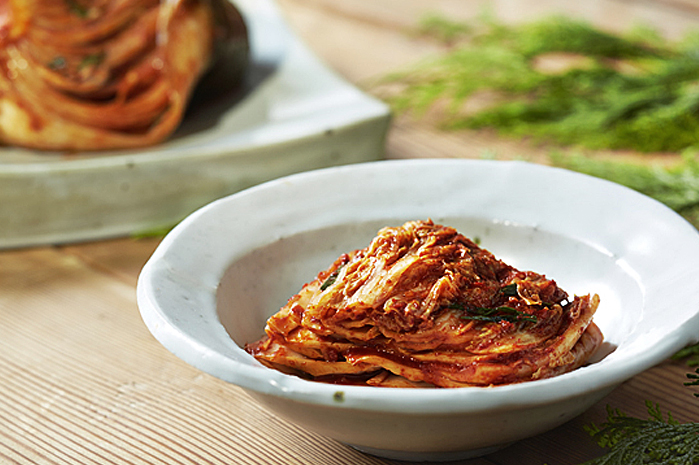
照片) 辣白菜辛奇
韩国人最喜欢吃的辣白菜辛奇是在腌制的白菜中加入萝卜丝、辣椒粉、蒜、虾酱等调料发酵而成的。
腌萝卜块辛奇
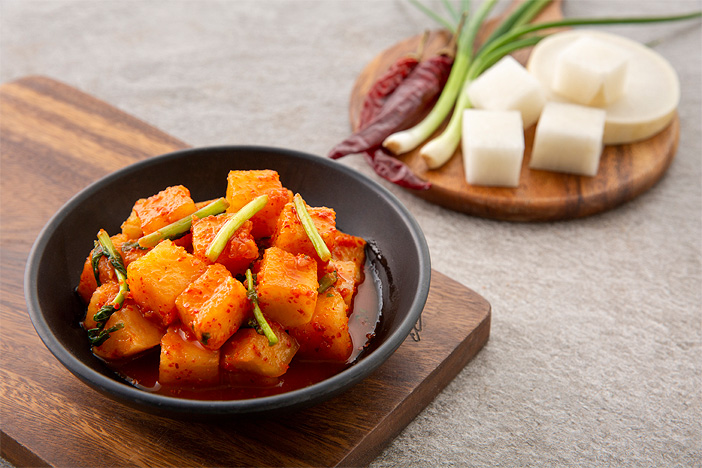
照片) 腌萝卜块辛奇
萝卜块辛奇与辣白菜的腌制方法类似,只是将辣白菜中的主食萝卜。其爽脆的口感更为一绝。
萝卜片水白菜
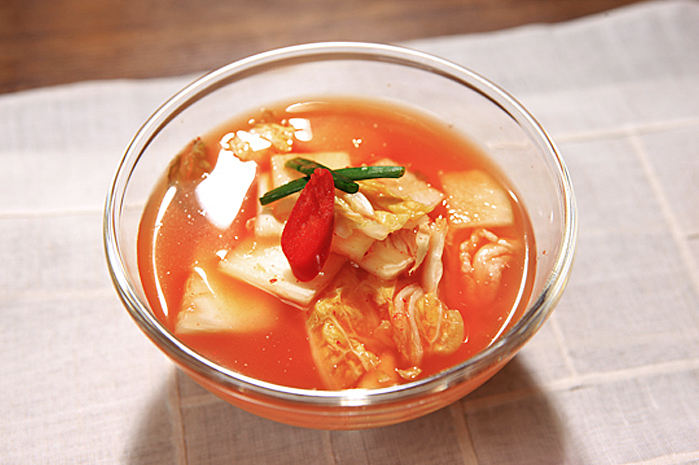
照片) 萝卜片水白菜
将萝卜和大葱切成薄片后放入食盐中腌制,在其上加入辣椒粉、蒜、生姜、苹果、梨和汤汁后制作而成的一种水辛奇。
萝卜缨辛奇
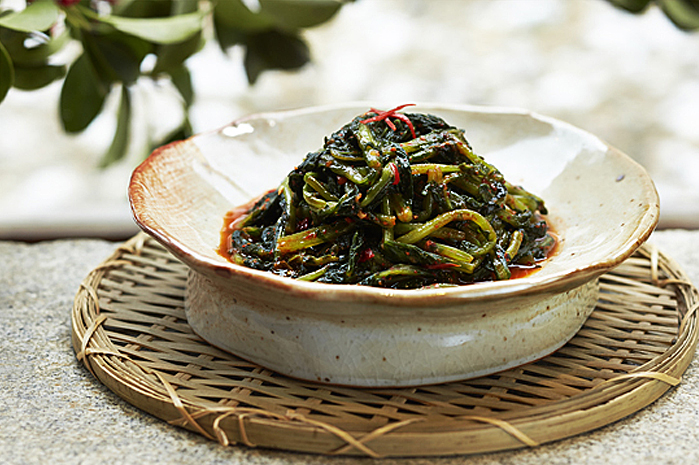
照片)萝卜缨辛奇辛奇
萝卜缨辛奇是在不盛产白菜的夏季常吃的一种辛奇。在小萝卜上加入辣椒粉、葱、韭菜等调料和食材制成的具有独特香味的辛奇。
黄瓜辛奇
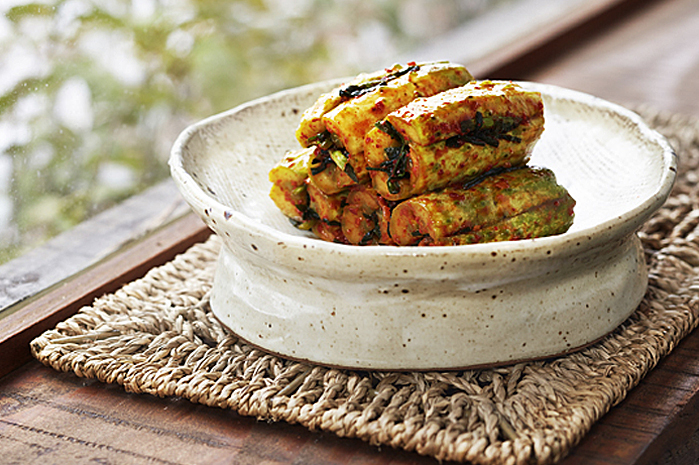
照片)黄瓜辛奇
黄瓜辛奇作为春、夏跨季常吃的一种辛奇,嫩脆的黄瓜配上凉爽的汤汁,美味非凡。
购买辛奇的场所
购买辛奇的主要场所有便利店、大型超市等。为方便游客购买,在机场免税店也会出售真空包装的辛奇。






